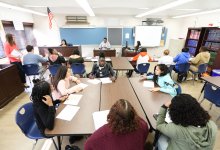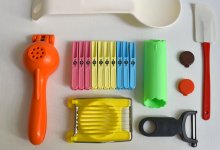Inquiry-Based Learning
Instead of just presenting the facts, use questions, problems, and scenarios to help students learn through their own agency and investigation.
7 Tips for Guiding Young Learners to Engage in Research
By redefining how they view research, early childhood educators can create classrooms that support young researchers.6kYour content has been saved!
Go to My Saved Content.Exploring Before Explaining Sparks Learning
New elementary science teachers can build student engagement and enhance learning by using the explore-before-explain approach.Your content has been saved!
Go to My Saved Content.Your Student Finished Early—Now What?
These extension activities for all grades will help teachers keep fast finishers engaged in meaningful work.What the Heck Is Inquiry-Based Learning?
Teachers use inquiry-based learning to combat the “dunno” -- a chronic problem in student engagement. Check out these four steps for creating inquiry-based curriculum.588.7kYour content has been saved!
Go to My Saved Content.10 Studies Every Teacher Should Know About
How to integrate the science of reading, plan for effective review sessions with your students, think about inquiry-based learning, and more.Inquiry-Based Tasks in Social Studies
Assignments that are bigger than a lesson and smaller than a unit are a good way to experiment with inquiry-based learning.208.1kYour content has been saved!
Go to My Saved Content.7 Projects Teachers Stand By
Planning for projects can be difficult and time-consuming. This list of teacher-tested projects—complete with printable resources—should offer a big head start.Using Staging Activities in Social Studies to Build Engagement
Effective staging lessons help make a new unit seem relevant to students and also set the stage for critical thinking.10kYour content has been saved!
Go to My Saved Content.How to Use the 5E Model in Your Science Classroom
An inquiry-focused method gives students a way to connect scientific ideas to their experiences and apply their learning.74kYour content has been saved!
Go to My Saved Content.- 147.8k
Your content has been saved!
Go to My Saved Content. Bringing Inquiry-Based Learning Into Your Class
A four-step approach to using a powerful model that increases student agency in learning.151.5kYour content has been saved!
Go to My Saved Content.Resources and Downloads to Facilitate Inquiry-Based Learning
Find information, strategies, protocols, and tools to promote curiosity and engage students in asking questions, thinking critically, and solving problems.150.9kYour content has been saved!
Go to My Saved Content.How to Engage Students in Historical Thinking Using Everyday Objects
Asking students to examine their own possessions from the perspective of a historian in the future helps them sharpens their analytical skills.74.5kYour content has been saved!
Go to My Saved Content.Want Mastery? Let Students Find Their Own Way
Prominent scholars say that to drive deeper learning, students need to become accustomed to confusion—and develop the persistence to find their own answers.90kYour content has been saved!
Go to My Saved Content.Inquiry and the Research Process
Tips for ensuring that your students’ research fosters genuine inquiry.114.5kYour content has been saved!
Go to My Saved Content.













